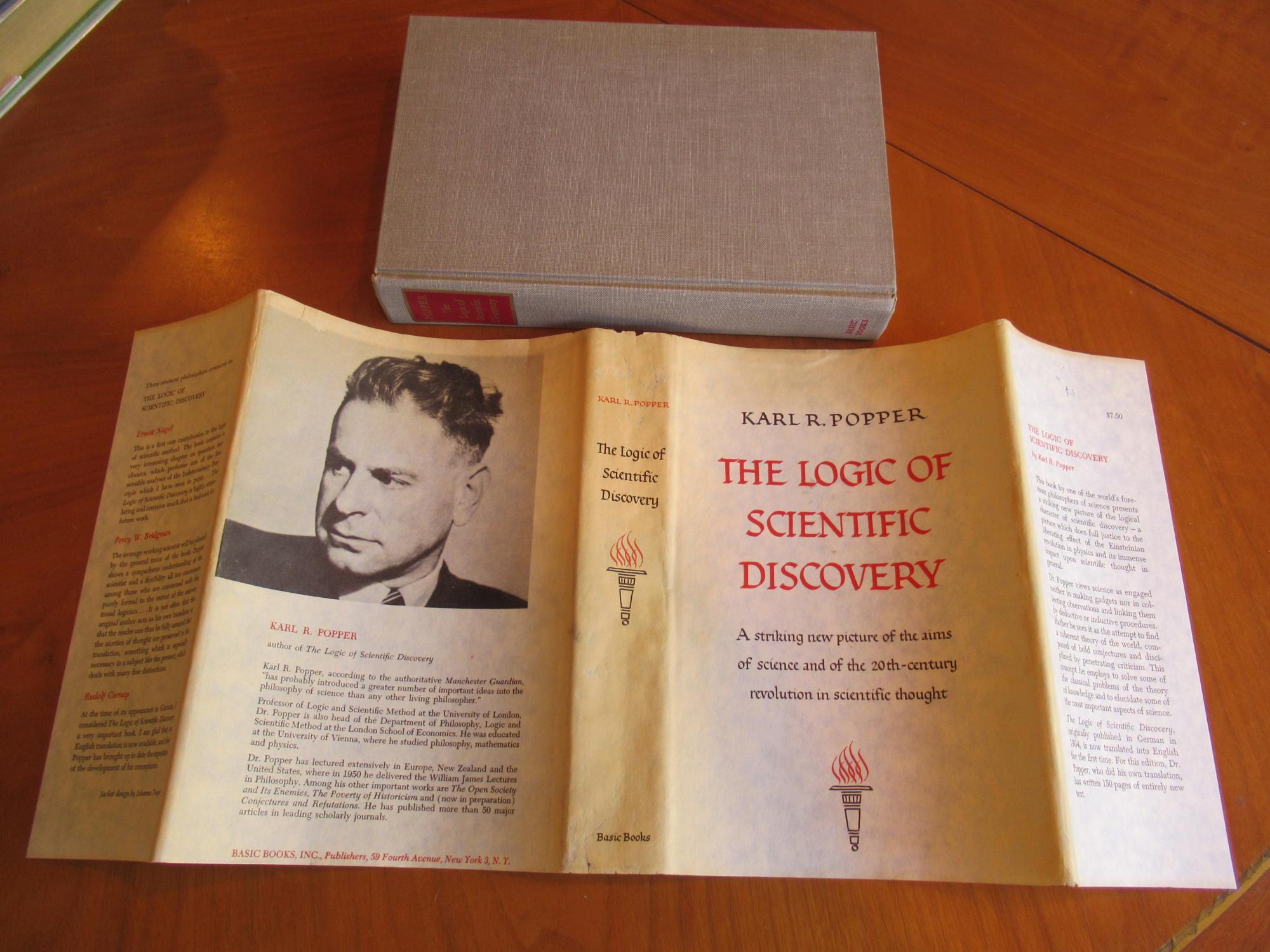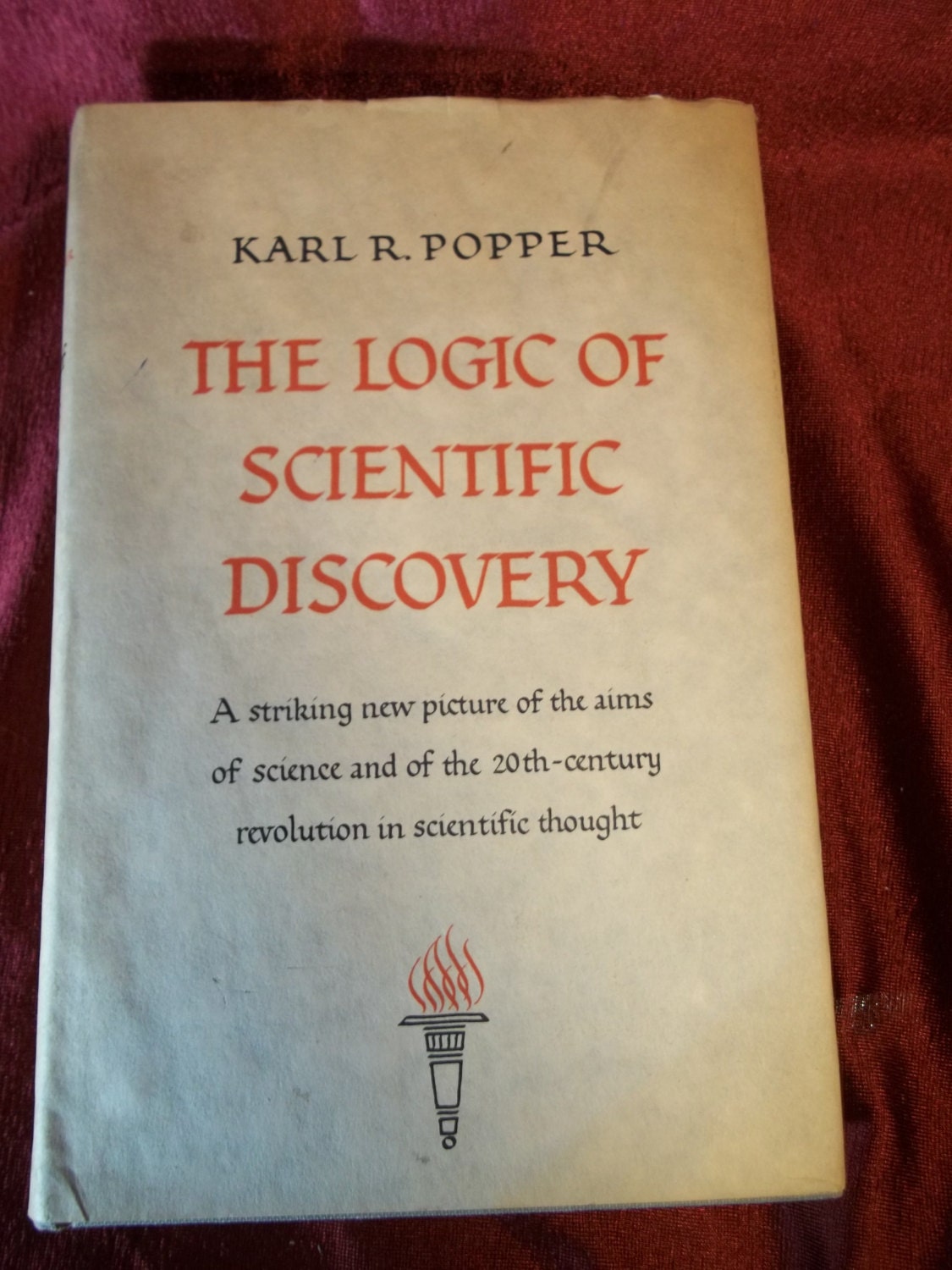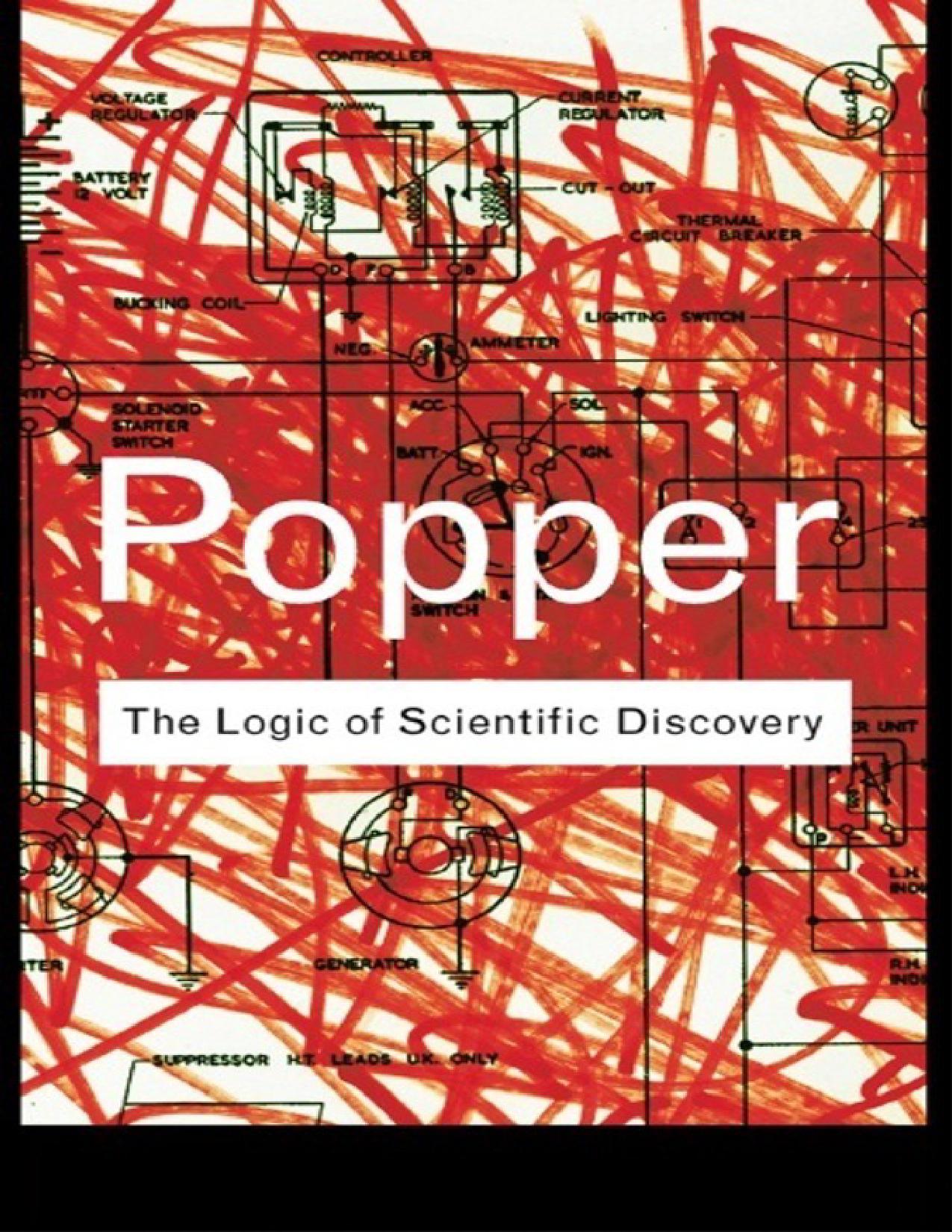
The Logic of Scientific Discovery Karl Popper First Edition Signed
It is one of the most important books ever written on the philosophy of science. Despite this, an English translation, The Logic of Scientific Discovery, was not published until 1959. Popper visited the University of London twice during 1935-36, where his work aroused the sympathetic interest of Professor John Woodger.

The Logic of Scientific Discovery Karl Popper First Edition Signed
The Logic of Scientific Discovery. Karl Raimund Popper. Psychology Press, 2002 - Philosophy - 479 pages. Described by the philosopher A.J. Ayer as a work of 'great originality and power', this book revolutionized contemporary thinking on science and knowledge. Ideas such as the now legendary doctrine of 'falsificationism' electrified the.

The Logic Of Scientific Discovery (First English Language Edition, With 150 Pages New Content
The logic of scientific discovery. $84.50. (1) Only 1 left in stock - order soon. 2014 Reprint of Original 1959 Edition. Exact facsimile of the original edition, not reproduced with Optical Recognition Software. This book by one of the world's foremost philosophers of science presented a striking new picture of the logical character of.

The Logic of Scientific Discovery 9780415078924 Popper, Karl Books
In The Logic of Scientific Discovery Karl Popper presents his brilliant thesis that no amount of positive experimentatal results can prove a scientific theory to be correct but a single negative result can prove a theory to be wrong. According to Popper, science is not a collection of established laws but rather a system by which hypotheses

The Logic of Scientific Discovery by Karl Popper (Free Summary) YouTube
The_Logic_Of_Scientific_Discovery_Karl_Popper.pdf Bookreader Item Preview

Karl Popper's "Logic of Scientific Discovery" An Overview YouTube
Other articles where The Logic of Scientific Discovery is discussed: positivism: The verifiability criterion of meaning and its offshoots:.his Logik der Forschung (1935; The Logic of Scientific Discovery), insisted that the meaning criterion should be abandoned and replaced by a criterion of demarcation between empirical (scientific) and transempirical (nonscientific, metaphysical.

The Logic of Scientific Discovery by Karl R Popper First American Edition 1959 from Dale
The Logic of Scientific Discovery. Naomi Bliven, New Yorker. Karl Popper The Logic of Scientific Discovery London and New York. Logik der Forschung first published 1935 by Verlag von Julius Springer, Vienna, Austria First English edition published 1959 by Hutchinson & Co. First published by Routledge 1992

The logic of scientific discovery (Radius Books) Karl R Popper 9780091117214 Books
The Logic of Scientific Discovery is a 1959 book about the philosophy of science by the philosopher Karl Popper.Popper rewrote his book in English from the 1934 (imprint '1935') German original, titled Logik der Forschung. Zur Erkenntnistheorie der modernen Naturwissenschaft, which literally translates as, "Logic of Research: On the Epistemology of Modern Natural Science"'.

The Logic Of Scientific Discovery by Karl R. Popper First
The Logic of Scientific Discovery Bookreader Item Preview. The Logic of Scientific Discovery by Popper, Karl R. (Karl Raimund), 1902-1994. Publication date 1959 Topics Science, Science -- Methodology, Philosophy, Logic, Logica, SCIENCE, Metodologia Cientifica, METHODOLOGY

The logic of scientific discovery (Radius Books) Karl Popper 9780091117207 Books
Popper, Karl The Logic Of Scientific Discovery by Karl Popper. Publication date 2000 Usage Public Domain Mark 1.0 Topics Philosophy Collection opensource Language English. PART I Introduction to the Logic of Science. 1 A Survey of Some Fundamental Problems. 3. 1 The Problem of Induction.

The Logic of Scientific Discovery NHBS Academic & Professional Books
"The Logic of Scientific Discovery" is a fascinating read and over turns the junk science of post modernism which often passes for science. Even empirical physics was abandoned over a 100 years ago. Popper requires scientists do the hard work that is required to reach a valid conclusion. This is a wonderful work for anyone interested in truth.

The Logic of Scientific Discovery Karl Popper First Edition Signed
Citation. Popper, K. R. (1959). The logic of scientific discovery. Basic Books. Abstract. This treatise on scientific theories and methods is a translation by its author of the 1934 Viennese edition, with considerable rearrangement and the addition of numerous appendices and notes.

The logic of scientific discovery Popper, Karl Raimund knihobot.sk
Ideas such as the now legendary doctrine of 'falsificationism' electrified the scientific community, influencing even working scientists, as well as post-war philosophy. This astonishing work ranks alongside The Open Society and Its Enemies as one of Popper's most enduring books and contains insights and arguments that demand to be read to this.

Amazon.fr The Logic of Scientific Discovery Popper, Karl R Livres
The Logic of Scientific Discovery. By Karl Popper. Edition 2nd Edition. First Published 2002. eBook Published 21 February 2002. Pub. Location London. Imprint. This astonishing work ranks alongside The Open Society and Its Enemies as one of Popper's most enduring books and contains insights and arguments that demand to be read to this day.

The Logic of Scientific Discovery Karl Popper First Edition Signed
Description. Described by the philosopher A.J. Ayer as a work of 'great originality and power', this book revolutionized contemporary thinking on science and knowledge. Ideas such as the now legendary doctrine of 'falsificationism' electrified the scientific community, influencing even working scientists, as well as post-war philosophy.

Popper, The Logic of Scientific Discovery Xenotheka
The logic of scientific discovery by Popper, Karl R. (Karl Raimund), 1902-1994. Publication date 2002. It presents succinctly Popper's view of science and his solutions to two fundamental problems of the theory of knowledge: the demarcation of science from non-science, and the role of induction in the growth of scientific knowledge.
- Trein Naar Valencia Vanaf Amsterdam
- Wie Speelt Ans In Sleepers
- Beth Hart Leave The Light On
- Waar Is Het Geld Van Pablo Escobar
- Ed Van Eeden Boeken Volgorde
- Wanneer Komt De Nieuwe Call Of Duty
- Opbrengsten Serious Request Per Jaar
- Pokemon Go Friend Codes Madagascar
- Make Up Jaren 70 Disco
- Guus Meeuwis Toen Ik Je Zag Songteksten